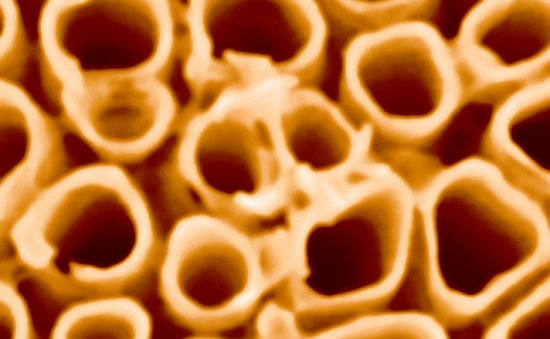
Eco Factor: Energy-efficient technology to generate hydrogen from water using sunlight.
Normally a constituent of toothpastes and sun screen lotions, titania (or titanium dioxide) could revolutionize hydrogen generation if the research conducted by a team from Northeastern University turns fruitful. The research team has discovered that the potassium residue bound to the surface of titania nanotubes makes them more efficient in generating hydrogen from water.
The findings came into limelight when the researchers were discovering new ways to integrate carbon into titania nanotubes, which enhances the ability of the nanotubes to absorb light in the visible spectrum. Using NIST x-ray spectroscopy beamline, the researchers discovered that potassium atoms were strongly bound to the surface. What initially was a residue left after the nanotube fabrication process, turned out to be interested when the nanotube’s ability to generate hydrogen from water using sunlight was compared with the nanotubes fabricated deliberately without potassium.
The arrays with potassium residue required only about one-third the electrical energy to produce the same amount of hydrogen as a equivalent array of potassium-free nanotubes. Researchers are still not able to provide as answer to actually how potassium alters the performance, but they do say that once the technology is controlled, hydrogen solar cells would become more efficient, which will make the process inexpensive.
Via: Physorg




